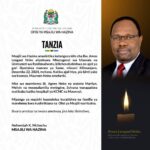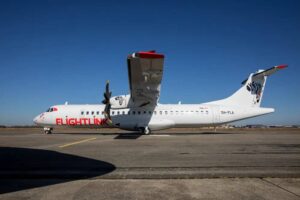By Marius van der Ham
As of 2022, air travel carbon emissions reached an estimated 800 Mt or 2% of the global energy-related greenhouse gas emissions. And while this was approximately 80% of the pre-pandemic levels, increasing demand for aviation services – projected to grow at between 2% and 5% by 2050 – will ultimately drive up the quantity of carbon emissions generated by the airline industry.
Thankfully, this adverse trajectory can be averted. By ramping up innovative aircraft technologies, “streamlining” flight operations and increasing the production and use of sustainable aviation fuels (SAFs), airlines can reduce the generation of carbon emissions by the quantities required to achieve Net Zero earlier than the 2050 target.
Indeed, the active upgrading of fleets to modern technologies, which generate much lower emissions, stands prominent as a leading consideration to reduce the carbon footprint of airlines.
This is with new-generation aircraft producing 20% to 25% less carbon emissions, and a noise footprint that is lower by a significant 40%. They also consume significantly lesser fuel — The older fleets on most airlines consume an average of 3.3 litres per passenger/100km, while the A350, for example, uses just 2.5 litres per passenger/100km, as the A220 expends 2.6 litres per passenger/100km, thanks to the incorporation of close to 40% lighter materials (lithium aluminium and composite materials) in their construction.
Yet flight renewal can only go so far as a strategy for comprehensively reducing the carbon footprint of airlines. Globally, industry players are pioneering the transition to SAFs, as a critical lever for decarbonising air transport in coming years.
Produced from non-fossil fuel sources, SAFs, which are cleaner alternatives to conventional jet fuel, can reduce carbon emissions by over 75% over the entire life cycle, and most can be used today without any modification to aircraft and flight operations.
And while SAFs are currently costlier than traditional jet fuels, their accelerated adoption can be supported through strategies that allow travellers to voluntarily contribute during ticketing a fee to facilitate the use of sustainable aviation fuels (SAFs) in flights, including cargo hauls.
From experience, customers are very eager to support this mission when they can choose their level of investment, with a guarantee that their contribution will be exclusively used to purchase SAFs.
Meanwhile, arrangements that favor low-carbon alternatives on shorter journeys, and more energy-efficient flights on longer journeys, can help customers minimise their overall carbon footprint of their trips. For example, allowing customers to combine train and air travel in the same reservation, with guaranteed connections, provides a desirable ‘intermodiality’ option that potentially brings convenience to travellers, while scoring major carbon goals for airlines.
Finally, from an operational standpoint, eco-piloting techniques can significantly reduce aircraft fuel consumption, and, ultimately, carbon emissions.
For instance, pilots trained to use single-engine taxiing end up saving up to 700kg of fuel per departure and arrival for the Airbus A350.
More savings are assured by leveraging AI-powered tools to optimize flight trajectories for fuel efficiency.
Other fuel-saving tactics include the use of bridge electricity instead of aircrafts’ auxiliary power units (APUs) before engine start-up, further reducing fuel usage.
All the aforementioned efforts align with the global drive for sustainability and environmental responsibility through prudent energy management and deliberate emissions reduction.
By implementing the proposed innovative aircraft technologies, including the adoption of fuel-efficient aircraft, and investing in alternative fuels, as well as business practices that are considerate of energy usage and waste production, the airline industry will be playing a leading role in the fight against climate change.
The writer is the General Manager for East, Southern, Nigeria, and Ghana at Air France-KLM.












More Stories
Kiongozi wa Mwenge apongeza wananchi kupelekewa huduma ya maji Handeni
TFS yawakaribisha wawekezaji katika vivutio vya utalii wa misitu
Waziri Bashungwa:Tumieni teknolojia za kisasa kudhibiti uhalifu unaovuka mipaka